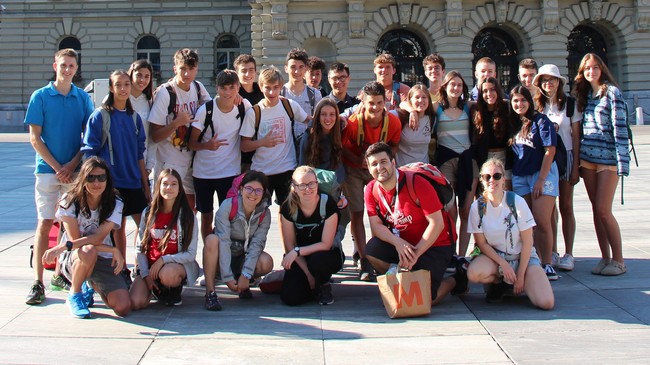
Most EU benefit seekers are ‘working poor’

Low salaries paid to European workers in Switzerland are the main cause as to why some Europeans later apply for Swiss welfare, a parliamentary report warns. It urges the cabinet to introduce measures to ensure low wages cover living costs.
According to a report by the House of Representatives control committee, published on Friday, more than half of the people from the European Union drawing social benefits in Switzerland were neither unemployed nor looking for work, but were the so-called “working poor” on low wages.
Those working in the construction and hotel industries, in the agriculture or retail sectors or as home help were the most affected.
Committee speaker Alfred Heer, a rightwing Swiss People’s Party parliamentarian, told reporters that the report found that the percentage of EU immigrants in Switzerland on welfare or who were unemployed were below Swiss averages.
The report found that 78% of Europeans came to Switzerland to work, while 9% came to join their families. Half of the remaining 13% came for training.
The committee said the monitoring of the impact of the free movement of persons was ‘very disorganised’ between the 26 Swiss cantons. It was crucial the cabinet closely monitored the percentage of people receiving state aid, average salary levels and low paid sectors, it concluded.
Minimum wage?
In a statement the centre-left Social Democratic Party said the best way of achieving these goals was by voting in favour of the initiative for a nationwide minimum wage of CHF4,000 ($4,480) per month on May 18.
Committee speaker Heer refused to make this link but declared that it was up to each parliamentary group to interpret the committee’s conclusions.
The people’s initiative on a minimum wage was submitted by the Trade Union Federation. The government and a majority in parliament, as well as some business leaders are against it.
The issue of welfare payments made to foreigners was also a hot topic during the initiative passed by a narrow majority of Swiss voters on February 9 to curb immigration.
This proposal imposes limits on the number of foreigners allowed into Switzerland and may signal an end to the country’s free movement accord with the EU.
Living without accords
In an interview in the Le Temps newspaper on Friday, Christoph Blocher, the leading People’s Party politician, said there was no way of reconciling the anti-immigration vote with the free movement of people, one of the fundamental principles for EU citizens.
As the Swiss authorities grapple with how to implement the initiative over the next three years, Blocher downplayed worries that depending on the decision taken by the Swiss the EU may retaliate and terminate the free movement of people agreement and along with that all other bilateral accords that were negotiated with Switzerland in the first package of accords between the two parties.
“We can very well live without them,” he declared.

In compliance with the JTI standards
More: SWI swissinfo.ch certified by the Journalism Trust Initiative
















![The four-metre-long painting "Sonntag der Bergbauern" [Sunday of the Mountain Farmers, 1923-24/26] had to be removed by a crane from the German Chancellery in Berlin for the exhibition in Bern.](https://www.swissinfo.ch/content/wp-content/uploads/sites/13/2025/12/01_Pressebild_KirchnerxKirchner.jpg?ver=cb688ed5)














You can find an overview of ongoing debates with our journalists here . Please join us!
If you want to start a conversation about a topic raised in this article or want to report factual errors, email us at english@swissinfo.ch.